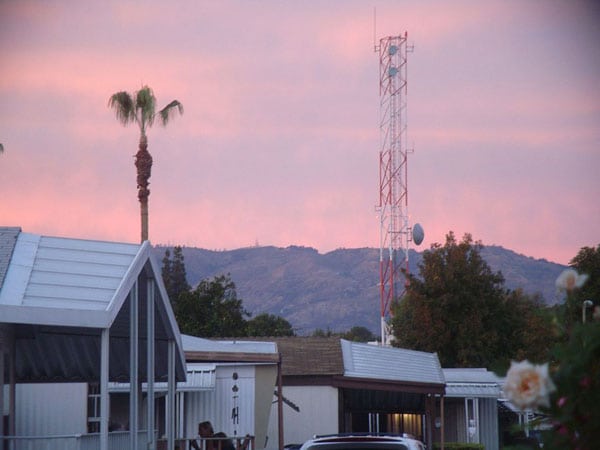
July 18, 2018; City Lab
“Manufactured home communities have a long history of providing low-cost housing in the US, where residents drive their homes in, secure them, and pay a monthly rent to stay on the owner’s land,” writes Hallie Golden for City Lab. At NPQ, we have written about manufactured housing co-ops before. Last October, NPQ noted that an estimated nine million households own manufactured housing, and there are another 1.5 million households who rent manufactured homes. By contrast, only about 4.8 million households receive any federal housing support.
As Golden explains, manufactured housing is “typically the least expensive option when it comes to unsubsidized housing, serving households with a median annual income of about $30,000, according to the Manufactured Housing Institute, a national trade organization.” Golden writes that 22 million Americans live in manufactured homes. “On average, they pay a gross housing cost of $564 per month, compared to $1,057 per month for people living in homes or apartments, according to Apartment List.”
It would seem a good deal, but challenges remain. While, manufactured housing may be, as the nonprofit Prosperity Now observes, the “de facto source of affordable housing in many of the nation’s most persistent poverty regions,” it is not without challenges. As NPQ noted before, “You may own your own home, but a good third of the nine million households that own manufactured homes do not own the land underneath.” This means, as Golden explains, that resident assets are at risk:
[R]esidents in most states find there are few protections to prevent them from being kicked out of mobile home parks at an owner’s or developer’s whim. If the land value increases, the owner might be tempted to sell, and residents in many places aren’t entitled to such protections as an advanced notice to vacate or money to cover relocation costs… When a community is offered up for sale, it means anyone can come and purchase you. They can displace you, your whole entire community.
And while the name “mobile home” suggests that residents can take their homes with them, the reality is that mobile homes are not so mobile.
Despite their name, relocating a mobile home can pose some big hurdles. For one thing, the home needs to be in good enough condition to move, and the owner has to find a community that will allow it in (Many have rules about the age of homes that are brought in). Owners also must be able to afford the $5,000 to $15,000 price tag that may be needed to move the structure.
Sign up for our free newsletters
Subscribe to NPQ's newsletters to have our top stories delivered directly to your inbox.
By signing up, you agree to our privacy policy and terms of use, and to receive messages from NPQ and our partners.
Mike Bullard, who works with the nonprofit Resident Owned Communities USA (ROC USA), adds that moving a mobile home is an ordeal that requires a crane and a truck, and sometimes additional vehicles, to escort the oversize load. The result, Bullard notes, is that people often are placed in the position where they must give up their home, which is typically their largest asset. And this loss is particularly burdensome given the owners’ typically low incomes.
To date, ROC USA has helped 220 mobile home parks convert to resident-owned communities, benefiting 14,252 homeowners, a number that is up 33 percent from just two years ago.
Katy Bowen is one of those 14,252 homeowners and is part of the 25-home Duvall Riverside Village community, located in a suburb near Seattle. Bowen participated in the resident buyout of that mobile home park and now is president of the co-op’s board of directors.
Bowen notes that the process of taking ownership was complicated, “At the beginning there was so much to discuss, approve, and learn that they were having meetings every week just to keep up with it all. We were so tired of meetings, but they had to be done.”
Today, each household pays a monthly co-op fee of $480. The board holds monthly meetings to make decisions, and every year members vote on the board’s budget. They also have an annual summer picnic. Bowen says that she used to not know many of her neighbors. Now, with regular meetings and events, “everybody knows each other,” she adds.
Jim Wallace, a 71-year-old retired mechanical engineer, is also a homeowner and a co-op member. Wallace says that he’s happy with the change. “It’s our property now, so that’s a good feeling. You’re not at the mercy of someone.”—Steve Dubb










